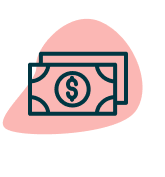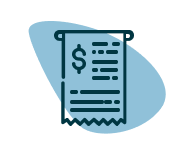Equipment Financing: Compare and Apply Now
Equipment financing enables you to make large purchases on equipment, machinery, or technology for your business and pay them off — with interest — over time. Because these small business loans are secured by the equipment you purchase, lender requirements, such as credit score and time in business are often more flexible. As a result, equipment financing can be a good option for startups and business owners with lower personal credit scores.
How much do you need?
No cost to you
Your credit score won't be impacted
Compare multiple lenders with one application
Equipment Financing at a Glance
Loan Amounts
$3,000 to $5 million
Repayment Terms
1 to 10 years
Interest Rates
4% to 45%
Funding Speed
As fast as the same day
How Equipment Financing Works
Equipment financing can be a great option for businesses that need to make a big purchase in the form of equipment, machinery or even technology (e.g., a point-of-sale system). An equipment loan works much the same way a term loan does: you receive funding to put toward necessary business equipment and agree to terms to pay the equipment loan off over time and with interest.
Terms and rates vary by lender, of course, but typically equipment financing involves the following:
- A down payment that ranges from 10% to 20%.
- An interest rate between 4% and 45% (you may receive rates on the lower end if you offer a larger down payment).
- A term length of anywhere from one to 10 years.
One key difference that sets equipment financing apart from other loan types is that it’s asset-based financing, which means the equipment itself serves as collateral to secure the loan. If you default on the loan, then the lender will seize the equipment and recover losses on the remaining value. Because of this, you may not need to sign a personal guarantee or provide additional collateral.
Pros and Cons of Equipment Financing
While there are many benefits to taking out an equipment loan to make a big purchase for your business, there are also some drawbacks to consider.
Pros
✔️ No additional collateral needed (typically).
✔️ Make a large business purchase without impacting cash flow.
✔️ Qualify, in some instances, with a lower personal credit score.
✔️ Own the equipment once the loan is paid off.
✔️ Deduct the purchase price of eligible equipment from your taxes.
Cons
✖️ Down payment may be required.
✖️ Lender may file a UCC lien.
✖️ A personal guarantee may be required.
✖️ Prepayment penalties may apply.
✖️ Business circumstances, equipment failure and/or technological advances may render the purchase useless before the loan term has ended.
Ideal Qualifications for Equipment Financing
*Based on past short-term loan Fundera customers


How to Qualify and Apply for Equipment Financing
If you believe equipment financing is the right option for you, follow these steps to determine whether you qualify and to prepare for your application.
1. Decide on the equipment you plan to purchase
As part of the application process, many lenders will want to know the equipment you plan to purchase and for what purpose. Some lenders may even wish to see a quote for the equipment. The more information you’re able to provide on your plan for the purchase, the more likely the lender is to seriously consider your application.
2. Evaluate your qualifications
To qualify for equipment financing, you will need to meet the lender’s minimum requirements for credit score, annual revenue and time in business. Again, these details will vary depending on the lender you choose.
While some lenders may consider applicants with lower scores, revenue or time in business than listed below, particularly those that cater to startups, generally the minimum requirements tend to fall within these ranges:
- Credit score: 550 to 650.
- Annual revenue: $100,000 to $250,000.
- Time in business: Six months to one year.
3. Compare your lender options
Do your research and shop around to find the lenders with minimum qualifications you can meet and with terms that will work for you, including how soon you may be able to receive funding if your application is accepted.
❗Start your search with our list of the top equipment financing companies.
4. Complete your application
Most applications for equipment financing can be completed online. If you gather the necessary documentation ahead of time, the online application process can move pretty quickly and smoothly. Before you begin the application, you’ll want to be sure you have the following information and documentation on hand, in additional to general details about your business:
- Bank statements
- Credit score and history
- Equipment quote
- Financial documents, such as a balance sheet, income statement and P&L
- Tax records
Online lenders tend to process applications and fund loans faster than banks do, often within only a few days.
Fundera Can Help
We make it easier to get the right equipment financing for your business. Complete one simple application — with no impact to your credit score and no obligation — to see which loan options you qualify for. A dedicated funding advisor will walk you through the entire process and help you find the best fit for your needs.
How much do you need?
No cost to you
Your credit score won't be impacted
Compare multiple lenders with one application
NerdWallet writers are subject matter authorities who use primary,
trustworthy sources to inform their work, including peer-reviewed
studies, government websites, academic research and interviews with
industry experts. All content is fact-checked for accuracy, timeliness
and relevance. You can learn more about NerdWallet's high
standards for journalism by reading our
editorial guidelines.